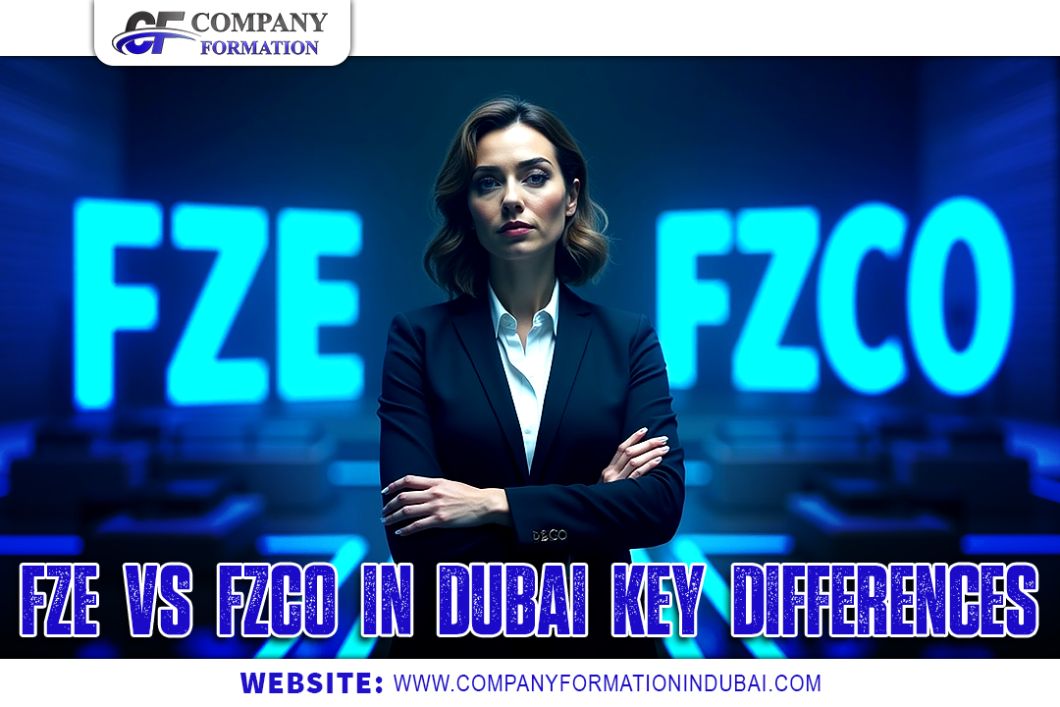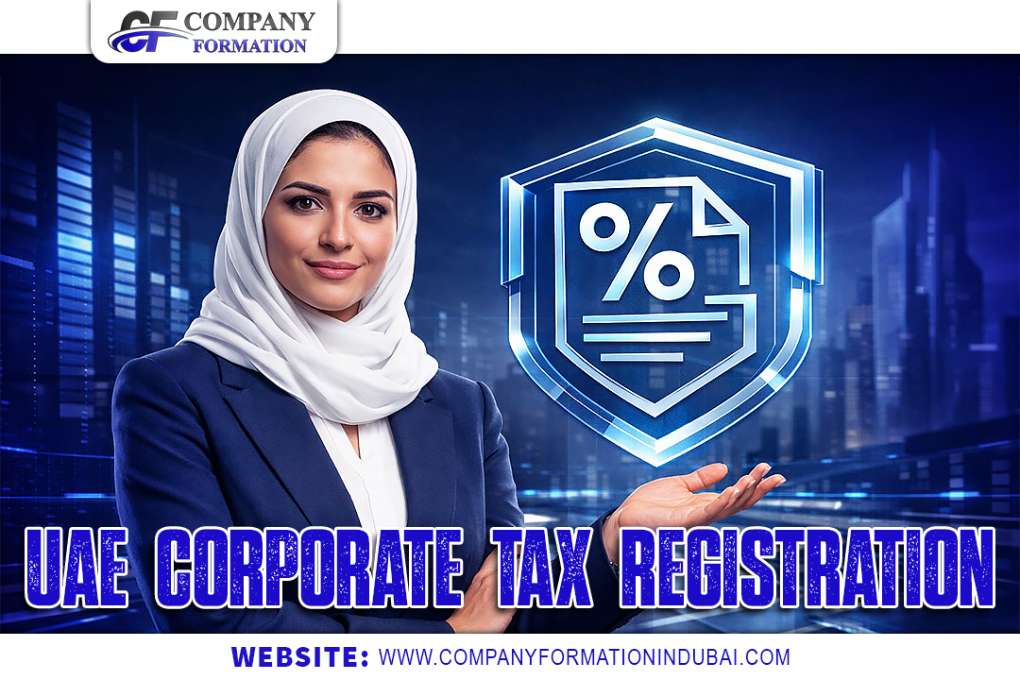you’ve landed in the right place. In a nutshell, Dubai offers a potent mix of high-growth markets, favorable tax regimes, and a pro-business ecosystem that welcomes both local and international investors. Whether you’re drawn to off-plan property investment, gold investment Dubai opportunities, bonds UAE, or the thriving UAE stock market, the city’s fast growth market climate and innovative business ecosystem are primed to help you achieve sustainable, long-term returns. Keep reading for a step-by-step guide to choosing the most suitable investment vehicles—ranging from real estate and Forex to cryptocurrency and national bonds—along with the must-know strategies for portfolio diversification, risk management, and wealth creation in the Middle East’s premier global hub.
Invest in Dubai | Your Golden Ticket to Wealth in the Middle East’s Economic Powerhouse
Welcome to Dubai, where opportunity-rich markets collide with a tax-free, business-friendly vibe that’s practically begging you to jump in. Tired of mediocre returns in oversaturated markets? Invest in Dubai and tap into a fast-growth ecosystem that’s rewriting the rules of wealth creation. From real estate investment Dubai to golden visa opportunities, UAE stock markets, gold investments, fintech startups, and even cryptocurrency ventures, this global financial hub offers a smorgasbord of high-yield options. With the Dubai Economic Agenda 2033 (D33) steering the city toward doubling its economy, foreign investors and expats are flocking to this strategic location for sustainable returns. Ready to diversify your portfolio, manage risks, and build wealth in 2025? Here’s your no-nonsense guide to investing in Dubai, packed with action-oriented strategies to make your money work harder than a camel in the desert.
How to Invest Money in the UAE: Your Ultimate Starter Kit
Dubai, a hyper-connected crossroads linking Asia, Europe, and Africa, isn’t just about shiny skyscrapers or luxury lifestyles—it’s a dynamic hub for investment opportunities. Forget the oil-only stereotype; Dubai’s economy has diversified into finance, tourism, technology, and real estate, making it a magnet for foreign capital. Why? The UAE government rolls out investor-friendly policies like 100% foreign ownership in free zones and the Golden Visa program, turning business setup and property buying into a breeze. The D33 Economic Agenda aims to double Dubai’s economy by 2033, betting big on AI, blockchain, and sustainability. Whether you’re an expat chasing stable returns, a seasoned investor eyeing emerging markets, or a high-net-worth individual seeking tax-efficient wealth, Dubai is your partner for accelerated growth.
Benefits of the UAE Investment Environment
Why invest in Dubai? Let’s unpack the attributes that make this city a world-leading destination for wealth creation.
A. Fast-Growth Market
Fueled by D33, Dubai is gunning to be a top three global economic city. With real estate boasting 19.9% year-on-year price increases and 8% rental yields, it’s a high-ROI environment perfect for investors seeking consistent growth. Unlike sluggish Western markets, UAE’s GDP growth (4-6%) and low unemployment (2-3%) scream stability and opportunity.
B. Strategic Location
Dubai bridges time zones, enabling a near 24-hour business cycle. Home to the busiest international airport and top logistics hubs like Jebel Ali Free Zone, it’s a global crossroads for trade and investment. This strategic edge makes Dubai a launchpad for MENA markets and beyond, perfect for multinational corporations and startups.
C. Global Financial Hub
The Dubai International Financial Centre (DIFC) is the region’s financial heartbeat, hosting banks, asset managers, and fintech startups. With $525M poured into ventures like Property Finder by firms like Blackstone, access to capital is a no-brainer. DIFC supports 300+ wealth management firms managing billions in AUM, making it a haven for financial innovation.
D. Ease of Doing Business
Business-friendly laws allow 100% foreign ownership in free zones like DIFC and DMCC. Zero income tax, government incentives, and world-class infrastructure make company formation smoother than a Palm Jumeirah breeze. Whether you’re incorporating a mainland company or a free zone business, Dubai minimizes red tape.
E. Innovative Business Ecosystem
Dubai is all-in on next-gen technologies like AI, blockchain, and Web3. The Virtual Assets Regulatory Authority (VARA) and Sandbox programs nurture digital innovation, making Dubai a haven for tech ventures. Dreaming of a fintech startup or metaverse project? Dubai has your back with grants and incubators.
F. Access to Top Talent
With 85% foreign-born residents, Dubai offers a multicultural workforce drawn by tax-free salaries and a cosmopolitan lifestyle. Need specialists for your startup or investment fund? Dubai’s talent pool is as deep as the Burj Khalifa is tall.
G. Cosmopolitan Lifestyle
Dubai isn’t just about wealth creation—it’s a vibrant city with year-round sunshine, modern infrastructure, and a luxury lifestyle. For expats, it’s a top pick for living and investing, blending culture, opportunity, and a family-friendly vibe.
Top Investment Opportunities in Dubai
Let’s explore the high-yield sectors where you can invest money in UAE, spotlighting Dubai’s diverse options.
A. Real Estate Investment
When you hear invest in Dubai, real estate likely steals the show. From luxury villas in Dubai Hills Estate to apartments in Dubai Marina, the property market offers diverse investment vehicles for every budget.
Why Real Estate in Dubai?
- Steady Appreciation: Properties in areas like Palm Jumeirah see 20% annual appreciation, with a 70% surge over four years.
- Dubai Golden Visa Investment: AED 2M in property unlocks a 10-year Golden Visa, a game-changer for expats seeking residency.
- Off-Plan Property Investment: Buy 15% below market price with flexible payment plans, reaping higher gains upon completion.
Types of Real Estate Investments:
- Residential Properties: Apartments and villas in Downtown Dubai or Emaar Beachfront deliver rental income or personal use. Short-term rentals thrive, fueled by tourism.
- Commercial Properties: Office spaces in Business Bay or DIFC offer consistent returns.
- Real Estate Crowdfunding: Platforms like Stake Properties let you invest smaller amounts in large ventures.
- Off-Plan Projects: Developers like Emaar Properties and Sobha Realty offer projects like The Oasis or Rashid Yachts & Marina with high ROI potential.
Key Points to Consider:
- Location is King: Dubai Creek Harbour or Jumeirah Islands near public transport or tourist attractions ensure high rental yields.
- Regulations & Fees: The Dubai Land Department (DLD) charges a 4% transfer fee. Factor these into your ROI calculations.
- Diversification: Spread investments across residential and commercial segments to manage risk.
B. Stocks and Equity Markets
Investing in Dubai for expats often starts with the UAE stock market. The Dubai Financial Market (DFM), NASDAQ Dubai, and Abu Dhabi Securities Exchange (ADX) offer blue-chip companies in banking, telecom, and infrastructure. Brokers also provide global market access to NYSE or London Stock Exchange.
Why Invest in Equities?
- High Returns: UAE-listed companies often post solid profits with generous dividends.
- Global Reach: Buy US stocks or MENA markets for portfolio growth.
- Dividend Income: Appeals to income-focused investors.
How to Get Started:
- Choose a Broker: Opt for DFSA-regulated brokers with low fees.
- Open a Trading Account: Submit passport, residency details, and bank info.
- Analyze & Invest: Study company fundamentals like debt levels, profit margins, and growth catalysts.
Pro Tip: Diversify across sectors like finance, real estate, and technology to mitigate risks.
C. Bonds and Fixed-Income Assets
For conservative investors, bonds UAE offerings provide stability. Government bonds, corporate bonds, and National Bonds offer steady coupon payments with low volatility.
Why Consider Bonds?
- Lower Volatility: Less risky than stocks.
- Predictable Income: Ideal for retirement planning.
- National Bonds: Government-backed, with AED 750,000 minimum for visa eligibility.
Drawbacks:
- Lower Returns: Yields lag behind equities.
- Inflation Risk: Fixed returns may erode with rising inflation.
D. Mutual Funds, ETFs & Passive Investing
Mutual funds and ETFs offer hands-off diversification. Local banks and brokerages provide access to global assets, from S&P 500 to MENA-focused funds.
Mutual Funds
- Actively Managed: Aim to beat the market, but higher fees apply.
- Passively Managed: Track indices like S&P 500 with lower expense ratios.
ETFs
- Trade like stocks on exchanges.
- Low Fees: Cost-effective and transparent.
- Liquidity: Buy or sell during trading hours.
Advantages:
- Low Barrier to Entry: Start with USD 136 via platforms like Stake.
- Instant Diversification: Spread risk across multiple assets.
- Flexibility: ETFs offer intra-day trading.
Note: Buy-and-hold index funds or ETFs often outperform active managers after fees, ideal for long-term wealth.
- Entities: S&P 500, Stake
- Attributes: Diversified, cost-effective
- Niche Requirements: Passive investing strategies Dubai
E. Real Estate Investment Trusts (REITs)
REITs let you invest in real estate without managing properties. Buy shares in portfolios including commercial buildings, hotels, or malls.
Why REITs in Dubai?
- Regular Dividends: REITs distribute most income to shareholders.
- Diversification: Spread risk across property types.
- Lower Entry Costs: Start with less capital than physical properties.
- Liquidity: Trade shares on DFM.
F. Gold Investment in Dubai
Dubai, the City of Gold, is a hub for gold investment. From gold souks to ETFs, investors have diverse options.
Ways to Invest in Gold:
- Physical Gold: Bars, coins, or jewelry from reputable dealers.
- Gold ETFs/Funds: Track gold prices without storage costs.
- Gold Futures/Options: For advanced traders seeking speculative gains.
Pros:
- Safe-Haven Asset: Retains value during economic instability.
- High Liquidity: Sell globally with ease.
- Inflation Hedge: Protects against currency devaluation.
Cons:
- Storage Costs: Physical gold requires secure storage.
- No Dividends: Gold doesn’t generate passive income.
G. Forex Trading & Currency Markets
Forex trading in Dubai is high-octane, with regulated brokers offering access to currency pairs like USD/AED or EUR/GBP.
Why Trade Forex in Dubai?
- 24-Hour Market: Trade anytime, Monday to Friday.
- High Liquidity: The largest financial market globally.
- Quick Profits: Day trading or swing trading can yield fast returns.
Cautions:
- Leverage Risk: Amplifies gains and losses.
- Volatility: Geopolitical events can swing rates.
- Regulation: Choose DFSA-licensed brokers.
H. Cryptocurrency & Digital Assets
Dubai leads the MENA crypto scene with VARA regulation and a pro-blockchain stance. Bitcoin, Ethereum, and stablecoins like USDT are popular.
Why Crypto in Dubai?
- Favorable Regulations: Clear guidelines for exchanges and token offerings.
- Innovation Culture: Web3 and blockchain startups thrive.
- Diversification: Crypto hedges against traditional markets.
Risks:
- Price Volatility: Dramatic swings are common.
- Security: Use secure wallets to protect assets.
- Regulatory Shifts: Global policies may impact markets.
I. Startup & Tech Investment (AI, Fintech, More)
Dubai shines as a hub for AI, fintech, and Web3 ventures. Incubators and accelerators support fast-scaling startups.
Key Areas:
- Fintech: Digital payments, robo-advisors, P2P lending.
- AI & Machine Learning: Predictive analytics for commerce and healthcare.
- Blockchain & Web3: Smart contracts, metaverse projects.
Getting Involved:
- Angel Investing: Fund early-stage startups.
- Venture Capital Funds: Diversify across high-growth ventures.
- Crowdfunding Platforms: Invest small amounts in tech projects.
Why Tech & Startups?
- High Returns: Successful ventures can yield massive gains.
- Government Support: Sandbox programs and grants boost innovation.
- Global Reach: Tap into MENA and global markets.
Steps for How to Invest in Dubai (For Expats & Residents)
Ready to start investing in Dubai? Here’s your step-by-step plan to capitalize on UAE opportunities.
Step 1: Determine Your Investment Goals
- Short-Term (1-2 years): High-yield savings or bonds for quick liquidation.
- Long-Term (5-10+ years): Equities, real estate, or ETFs for growth.
- Retirement: Balanced portfolio with stocks, bonds, and REITs.
Step 2: Research & Select an Investment Vehicle Choose real estate, UAE stock market, crypto, or mutual funds based on risk appetite and goals.
Step 3: Sort Out Legal & Visa Requirements
- Expats need a residency visa for trading accounts.
- Free zones offer 100% ownership; mainland may require a local sponsor.
Step 4: Pick a Regulated Broker or Platform Choose DFSA-regulated brokers with user-friendly platforms and low fees.
Step 5: Open a Bank Account in the UAE UAE banks offer investor accounts with integrated trading apps and fast transfers.
Step 6: Fund Your Account & Start Trading/Investing Buy assets or engage a licensed real estate agent. Watch DLD fees for property.
Step 7: Monitor & Rebalance Track performance and rebalance every 6-12 months to maintain allocation.
Step 8: Leverage Robo-Advisors (Optional) Use digital platforms for automated investing with low-cost ETFs.
Portfolio Diversification & Risk Management
Diversification is your shield in Dubai’s dynamic markets.
- Asset Allocation: Spread funds across stocks, bonds, REIT, gold, and crypto.
- Geographic Diversification: Access global markets via local brokers.
- Emergency Fund: Keep 3-6 months’ expenses in a high-liquidity account.
Risk Mitigation Tips:
- Regular Checkups: Reassess every 6-12 months.
- Dollar-Cost Averaging (DCA): Invest fixed amounts to avoid market timing.
- Stay Informed: Monitor D33 updates, global events, and economic policies.
Legal and Visa Considerations
Residency Visas & Business Setup
- Golden Visa: AED 2M in property or strategic sectors qualifies for 5- or 10-year residency.
- Freelance Visas: Ideal for digital entrepreneurs.
- Free Zone vs Mainland: Free zones offer tax benefits; mainland allows broader UAE market access.
Tax & Regulatory Landscape
- Zero Personal Income Tax: A major draw for expats.
- Corporate Tax: 9% for large businesses, minimal for small investors.
- Compliance: Stick to DFSA regulations and avoid unlicensed schemes.
FAQs: About Investing in Dubai
Q1: Is Dubai real estate investment risky?
A: Every market has ups and downs, but Dubai’s infrastructure spending, population growth, and positive trajectory make it resilient. Diversify and research to mitigate risks.
Q2: How to invest in UAE stock market as a non-resident?
A: Non-residents can open trading accounts with DFSA-regulated brokers using passport and bank details.
Q3: Which are the best investments in UAE for expats seeking quick returns?
A: Forex trading or short-term property flips in Dubai Marina offer high returns, but consult professionals to manage higher risks.
Q4: Should I opt for National Bonds or private bond funds?
A: National Bonds are government-backed and stable; private bonds may yield more but carry added risk.
Q5: Can I invest in cryptocurrency while living in Dubai?
A: Absolutely! VARA regulates crypto exchanges, making Dubai a safe hub for Bitcoin, Ethereum, and stablecoins.
Q6: What’s the difference between free zone and mainland business setup?
A: Free zones offer 100% ownership and tax benefits; mainland allows unrestricted UAE market access.
Q7: Any tips for expats investing in Dubai real estate for rental income?
A: Focus on high-demand areas like Downtown or Emaar South. Short-term rentals via Property Finder yield up to 8% annually.
Conclusion
Dubai stands tall as a world-leading investment destination, blending fast-growth markets, a cosmopolitan lifestyle, and an innovative business ecosystem. It’s a strategic launchpad for wealth creation, connecting MENA opportunity-rich economies with global markets.
Key Takeaways:
- Diversify across real estate, stocks, bonds, REITs, gold, crypto, and AI startups.
- Stay informed about DLD fees, DFSA regulations, and Golden Visa updates.
- Focus on long-term growth in real estate, fintech, and Web3.
- Assess risk tolerance before diving into volatile markets like Forex or crypto.
- Leverage free zones for business setup and explore Golden Visa for residency.
Where to Go From Here:
- Newbies: Start with bonds or mutual funds to learn the ropes.
- Experienced Investors: Build a diversified portfolio with off-plan properties and UAE equities.
- High-Risk Takers: Explore AI startups, fintech, or Web3 ventures for massive gains.
- Consult Experts: Partner with financial advisors, real estate agents, or legal experts for big moves.
With Dubai’s tax-free, investor-friendly vibe and D33-driven growth, you’re poised to capitalize on the best UAE investment opportunities in 2025. Ready to invest in Dubai? Take the first step—research, plan, and partner with professionals to unlock your wealth potential in this dynamic hub.







